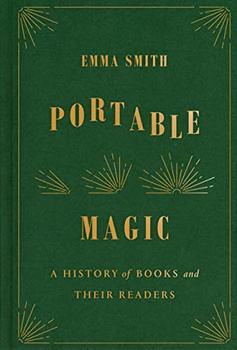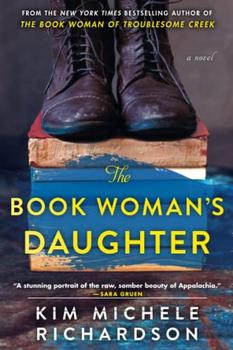Summary | Excerpt | Reviews | Beyond the book | Read-Alikes | Genres & Themes | Author Bio

A History of the American Bookstore
by Evan FrissEvan Friss's paean to bookstores, booksellers, and readers, The Bookshop: A History of the American Bookstore, is a delightful romp through time reflected through the lens of this brick-and-mortar institution. In its pages the author explores the development of the trade, how the social climate impacted the establishment of specific shops, and how bookstores — and especially booksellers — influenced societal attitudes in return.
It isn't an exhaustive history, but more of a series of vignettes, with each chapter focusing on a different bookseller. It's laid out chronologically, starting with Benjamin Franklin's Printing House in Philadelphia and ending with Parnassus Books in Nashville, established by author Ann Patchett and her business partner Karen Hayes in 2011. The early sections are more focused on the evolution of the book trade, discussing, for example, how Franklin found no real bookshops in Philadelphia when he first settled there in the 1720s, and how he transformed his business from a general goods store that happened to sell books into a full-blown publishing company. The author goes on to discuss other important booksellers, like Ticknor and Fields and their famous Old Corner Bookstore in Boston, which developed into a sort of salon where literary luminaries congregated. "The store was a de facto public space, a meeting space, a communal space," Friss writes. "In those cramped quarters, readers, writers and literature gathered. It was intimate. It was far reaching. It was alive. And it was at the center of a transformation: the birth of the modern American bookstore."
As the work progresses, the author's emphasis begins to shift, citing dramatic eras in American history and illustrating how bookstores fit into the changing landscape. One chapter highlights Madge Jenison and her store The Sunwise Turn, which became a hub for the suffragette movement in the early 20th century (see Beyond the Book). Another highlights the Oscar Wilde Memorial bookshop, opened in 1967 by Craig Rodwell. It was "the first of its kind — a full-fledged, enduring, highly visible gay bookshop." Still later, the author features Julie Morse's Amazon Bookstore (unrelated to the behemoth with the same name we now know so well). Founded in Minneapolis in 1970, it is widely thought to be the first feminist bookstore in the United States.
The Bookshop is utterly charming, and Friss's love for his subject is evident on every page. What makes it really work, though, is that his emphasis isn't on the actual shops; he highlights the people that took a leap of faith to create these remarkable establishments. Each one comes across as passionate about their field (Ann Patchett, he notes, didn't plan to make a profit when she opened her bookstore — "It was more about protecting an endangered species" — i.e., the indie bookstore). They're people who cared about creating safe spaces for others to meet and discuss ideas as well as a place to purchase books. Under the author's venerating pen, each one is heroic.
Also quite entertaining is Friss's inclusion of bits of trivia. He states, for example, that before 1851 the post office didn't consider bound books mailable; they had to be shipped by private wholesalers. Elsewhere, he writes:
"[O]ther stores maintained moats that separated the books from the buyers. Some of the world's earliest bookstores were entirely unbrowsable. The books sat in enclosed bins and boxes along shelves with their spines standing invisibly against the back wall, or they were piled into horizontal stacks, also with their fore edges, rather than their spines, exposed. Even into the nineteenth century, bookstores kept books in cupboards behind the counter, out of reach to everyone except the clerks. The stock tended to be grouped by publisher, making it easier to keep track of inventory but impossible to browse by genre."
The book is exceptionally readable, although each chapter is self-contained so there's no overarching story that drives it forward. There are certainly plenty of facts and figures (in 2021, "the average American consumer…spent thirty dollars a year on books…[and] a 2020 report found that 44.5 percent of adults didn't read a single book outside of what might have been assigned for work or school"). These statistics are secondary to the author's purpose; they're used judiciously and never bog down the text.
From its title and description, one might be tempted to think The Bookshop is intended for a very targeted audience and would appeal only to those in the trade or to readers who frequent indie bookstores. While readers in those demographics will almost certainly love the book, I recommend it to a much wider readership, as this is a compelling and seldom-explored aspect of American history. Friss's engaging style and fascinating information make this one a winner.
![]() This review
first ran in the September 4, 2024
issue of BookBrowse Recommends.
This review
first ran in the September 4, 2024
issue of BookBrowse Recommends.

If you liked The Bookshop, try these:

by Emma Smith
Published 2022
A history of one of humankind's most resilient and influential technologies over the past millennium—the book.

by Kim Michele Richardson
Published 2022
Honey Lovett, the daughter of the beloved Troublesome book woman, who must fight for her own independence with the help of the women who guide her and the books that set her free.
Your guide toexceptional books
BookBrowse seeks out and recommends the best in contemporary fiction and nonfiction—books that not only engage and entertain but also deepen our understanding of ourselves and the world around us.